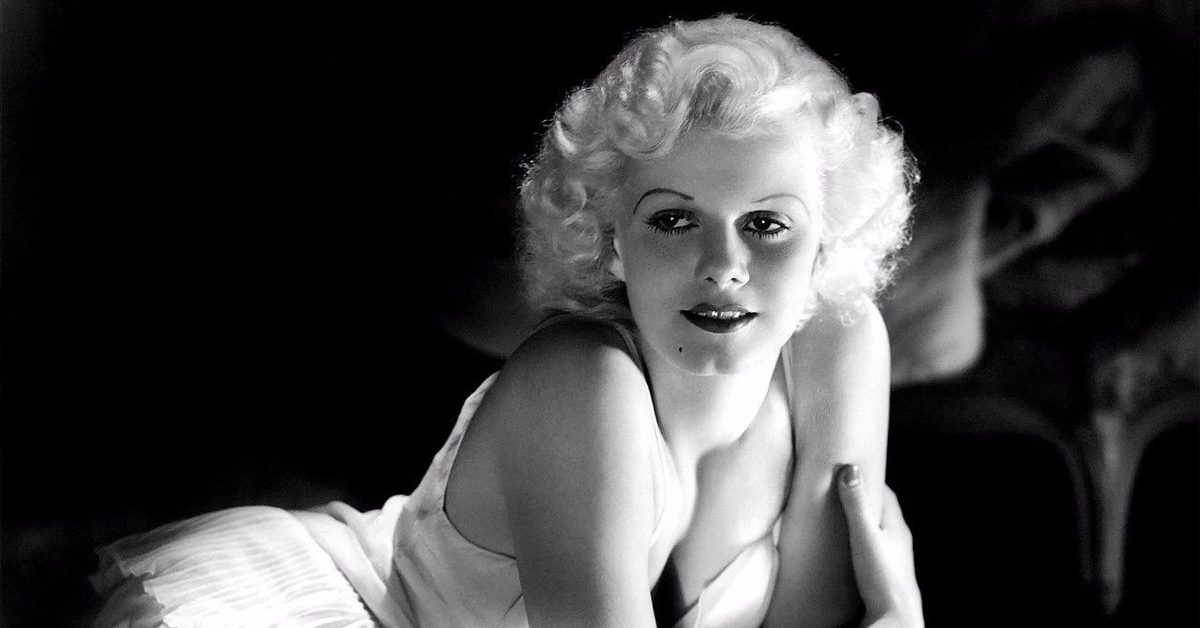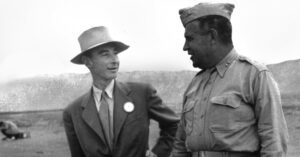The original blonde Bombshell (1933) starred, and was Jean Harlow. This film was the genesis of that term. It was a pre-Code, pre-Screwball dazzler in which she satirized her own, wild, star persona. This picture was one of the most pungent, innuendo-laden and devastating self-satires ever to come out of Hollywood.
If a behind-the-scenes, candid movie like Bombshell had never been made, film fans would have dreamed about it, and longed for it, as the fulfillment of one of life’s great cinematic guilty pressures.
After the tentative performance she gave in The Public Enemy (1931), Jean Harlow learned to act. Or, maybe she just abandoned stiff, early talking-picture acting techniques. Whatever she did, what a transformation. In Bombshell , only two years later, she literally played herself, as though freely admitting she had a flamboyant private life to match her public image.
Fast, funny, Jean Harlow possessed the necessary sexuality and vulnerability to make Bombshell explode. And did it ever!
At the same time, she fearlessly satirized one of her own films, recreating a scene from another genuine classic, Red Dust (1932) with Clark Gable, and all the while she made the dramatic moments, as well as the comedy, ring true and appear effortless.
Bombshell started out as an unproduced dramatic play which passed through the hands of writer John Lee Mahin. “It was about this poor girl who became a big movie star, all based on publicity,” Mahin explained decades later. “Nobody understood her, everybody used her, she worked all the time….It was tragic.”
Bombshell doesn’t tell a conventional, linear story. There isn’t the one, single leading man for Harlow to pair off with in a supposed happy ending. Like Jean Harlow’s actual life, there were many — too many — leading men, and no happy ending.
The film was released to theaters on October 20, 1933. “When we took Bombshell out,” recalled editor Margaret Booth, “we thought it was dud. I cut it very snappy, which was unusual then. Nobody had ever cut a film that fast. I used a lot of close-ups, because Harlow had this great, expressive face. But everybody at the studio said, ‘This isn’t going to be any good.'”
The critics got it, the public, not so much. The New York Times hailed Harlow and exclaimed the picture was “wild fun…a merry, fast-paced diversion.”
Variety said, “Bombshell is just that. As fast and funny a picture as Hollywood has ever made, and likely to start a new cycle of films about the picture business….Story is plenty inside…written with fine jaunty insouciance and acted with luscious abandon by a tip top cast. It will be a delight to the reviewers, a chucklesome morsel for the Coast crowd and a good boxoffice picture all around. It may be just a little too wise for the mob at large to permit unlimited grosses.”
The picture did turn out to be quite successful after all, and was Jean Harlow’s favorite film.



